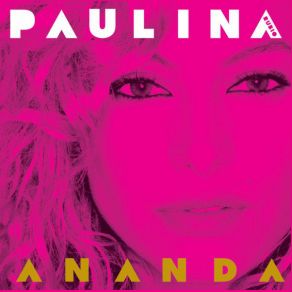Ananda
Download links and information about Ananda by Paulina Rubio. This album was released in 2006 and it belongs to Electronica, World Music, Latin, Pop genres. It contains 13 tracks with total duration of 48:52 minutes.

|
|
|---|---|
| Artist: | Paulina Rubio |
| Release date: | 2006 |
| Genre: | Electronica, World Music, Latin, Pop |
| Tracks: | 13 |
| Duration: | 48:52 |
| Buy it NOW at: | |
| Buy on iTunes $9.99 | |
| Buy on iTunes $9.99 | |
| Buy on iTunes $9.99 | |
| Buy on Songswave €1.67 | |
Tracks
[Edit]| No. | Title | Length |
|---|---|---|
| 1. | Nada Puede Cambiarme | 3:38 |
| 2. | Ayúdame | 3:56 |
| 3. | N.O. | 3:26 |
| 4. | Que Me Voy a Quedar | 3:20 |
| 5. | Aunque No Sea Conmigo | 3:39 |
| 6. | No Te Cambio | 3:41 |
| 7. | Retrato | 3:13 |
| 8. | Mienteme una Vez Más | 3:37 |
| 9. | Hoy | 3:54 |
| 10. | Lo Que Pensamos | 3:48 |
| 11. | Tu y Yo | 3:35 |
| 12. | Sin Final | 5:57 |
| 13. | Me Siento Mucho Más Fuerte | 3:08 |
Details
[Edit]With Ananda, her third impressive all-new album in a row, it seems like Paulina Rubio has her career as one of Latin pop's biggest and brightest hitmakers on safe ground, following a frustrating decade with EMI in the '90s and an unsuccessful bid for English-language-translated crossover in 2002 (the stilted Border Girl, probably best forgotten). The former Mexican child star, aka La Chica Dorada, certainly has been through a lot, so it's reassuring to see her settle into such a smooth-running groove — and it's especially reassuring for fans, who have had to wait several years between new albums. Rest assured, the two-and-a-half-year wait for Ananda was worthwhile, just as the four-year gap between her comeback album (and Universal Latino debut), Paulina (2000), and the kaleidoscopic Pau-Latina (2004) was indeed worthwhile. What makes Ananda so enjoyable, however, beyond the satisfaction of its impressiveness in the wake of its anticipation, is how different it is from her past work. Granted, the freneticism and electronic-tinged production prowess of Pau-Latina was a stretch from the relatively straightforward Latin pop of Paulina. But to then fully embrace restrained pop/rock, as Rubio does throughout Ananda, is surprising. If anything, one might have expected Rubio to urbanize her style with reggaeton flourishes, since she's such a huge pop star and since that seems to be the prevailing Latin musical trend of the moment. After all, even Shakira — probably the most individual of Latin pop stars — embraced reggaeton inflections with "La Tortura," the runaway Latin pop hit of 2005.
Instead, Rubio heads in the opposite direction, collaborating with some of the most tasteful and mannered artists in contemporary popular Latin music, most notably Julieta Venegas, Juanes, and Xabi San Martín (better known in the guise of his band, La Oreja de Van Gogh), who each contribute a song. In addition, she collaborates with Cachorro López, the producer partly responsible for the wealth of wonders on Venegas' Limón y Sal (2006), as well as several other producers with grade-A résumés: Aureo Baqueiro, Rick Wake, Toy Hernández, Chris "Tricky" Stewart, and even Gustavo Santaolalla, who co-produces "Hoy" with his longtime associate, Adrian Sosa. (If that weren't enough, even former Guns N' Roses guitarist Slash is a collaborator, oddly enough, laying down a solo on "Nada Puede Cambiarme.") Because each of these collaborators appears on only one or two songs, and because the recording of Ananda allegedly took over a year — at Rubio's home studio in Madrid, no less — the resulting album is an exceptionally solid collection of 13 would-be hits, each interesting and pleasing in its own fashion. It all kicks off with a run of radio-ready singalongs, beginning with lead single "Ni una Sola Palabra," and works through some guitar-driven rock songs before wrapping up with a few uplifting dance-pop songs and a breezy ballad to top it all off. Really, there's little to not like here if you enjoy Spanish-language pop/rock that is well written and impeccably produced. Granted, some may grumble about the lack of Mexican motifs, or the subdued turn away from dance music, or even the reliance on outsiders. Well, grumble away, because Rubio seems to be in such a comfortable place on Ananda that she could probably care less. For instance, the title she chose for this album is based upon "a worldwide movement based on the teachings of Paramhansa Yogananda" (www.ananda.org) — a spiritual form of yoga, that is — a world removed from all the reggaeton and duranguense concurrently overtaking the Latin marketplace. Listeners who likewise would prefer to remove themselves from such a marketplace might start with Ananda.